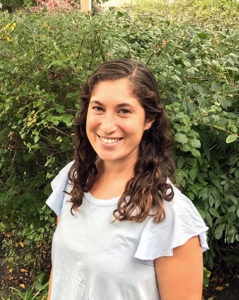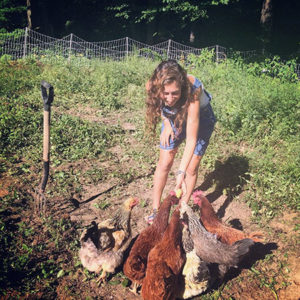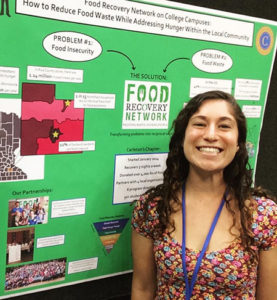Growing an Appreciation for Local Food
I grew up in the small town of Leverett, MA, where backyard chickens were common and everybody’s parents had a granola recipe that was “better than the grocery store’s.” As a kid I didn’t realize how lucky I was to live in a place that was so ripe with fresh, local food.
I can clearly remember the feeling of sinking my toes into the mud as I walked through the fields of our local community-supported agriculture farm, plopping every third cherry tomato I picked in my basket while the rest went straight into my mouth. One day, while picking up our vegetables at the farm, I discovered Pat, a massive and gloriously mud-covered pot-bellied pig, and immediately fell in love. The next day in my first-grade classroom, I proudly informed my classmates that I had “become a vegetarian.”
Sometimes it takes distance from the things that have been so assiduously woven into your life to recognize what a large role they have played. I think the same principle applies to food. While living abroad in France and Spain on a gap year before college, I found myself craving the crunch of a fresh vegetable so much that I would eat anything raw. One time I even ate an eggplant raw — which I would not suggest to anyone else. No longer having access to ripe local produce made me realize how important it had been to my overall well-being and how that had instilled in me a passion to extend that access to others.
The first meal I ate when I arrived on the campus of Carleton College in Northfield, MN, was not in the dining hall or at a local restaurant, but instead was a foraged assembly of late summer raspberries, tomatoes, and greens from the campus community garden. I had arrived early for preseason cross-country track to a mostly empty campus, with an extremely empty stomach. In a way, that first day set the stage for my next four years of college.The campus garden felt like a good way to make fresh vegetables accessible to all students, so I sunk my hands in (literally and metaphorically).
Later, I started volunteering at a local farm that sold much of its produce to Bon Appétit at Carleton. Having seen the resources and labor that went into the food we ate every day in the dining hall, I began to wonder about what happened to the extra food at the end of meal periods. Working as Food and Sustainability Coordinator for Carleton’s Center for Community and Civic Engagement, I proposed that we start a food recovery program for the surplus food from the dining hall. For the next few years, I would spend countless hours in the dining hall packaging the surplus food to donate to community partners.
Starting the food recovery program at Carleton gave me the opportunity to see behind the scenes of our dining hall and meet the Bon Appétit chefs and managers. I was impressed to see how passionate they are about creating delicious food and ensuring that everything before, during, and after service is done as sustainably as possible. I’m thrilled to have joined the team and to be learning more about other campuses, other sustainability initiatives, and everything else this year has in store!


